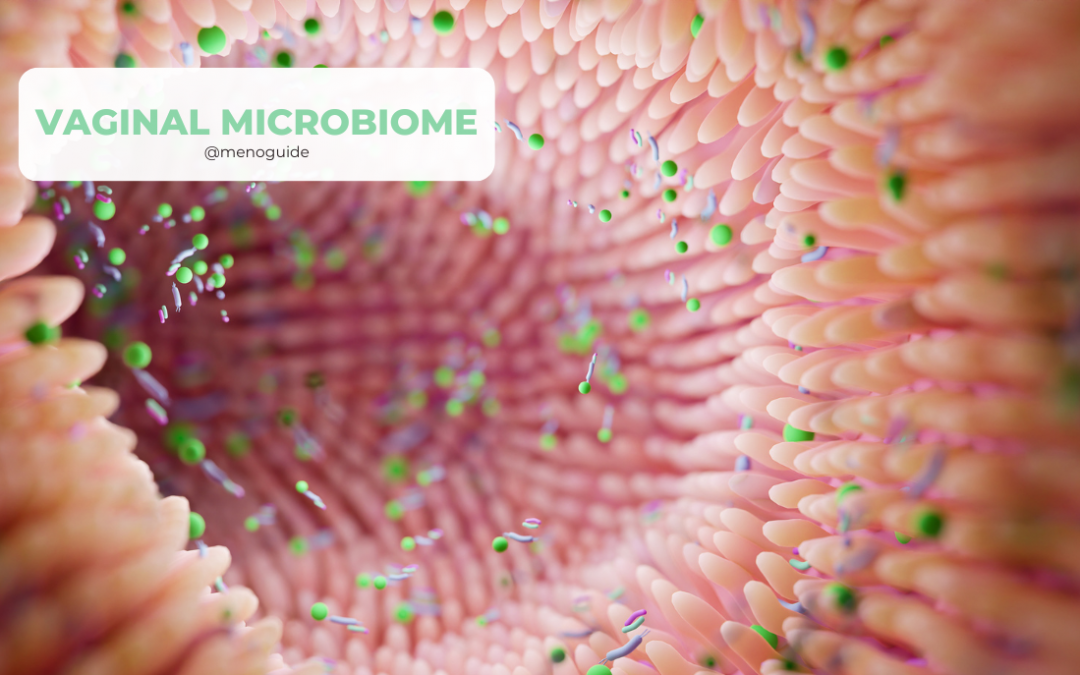As we journey through different phases of life, our bodies undergo numerous changes, and one significant transition that women experience is menopause. At Agile Life Sciences, we’re dedicated to advancing healthcare solutions, and our latest project, MenoGuide, aims to revolutionise menopause testing and treatment. To comprehend the intricacies of menopause and its related factors, it’s essential to delve into the concept of the vaginal microbiome. In this article, we’ll explore what the vaginal microbiome is and how it influences women’s health.
To learn more about MenoGuide and its innovative approach to menopause testing, visit our information guide.
Understanding the Vaginal Microbiome
The vaginal microbiome refers to the community of microorganisms that reside within the vaginal canal. Similar to the gut microbiome, which plays a vital role in digestion and overall health, the vaginal microbiome has a significant impact on women’s well-being, particularly during menopause.
The vaginal microbiome consists of various bacteria species, with Lactobacillus being one of the most prevalent. These bacteria help maintain a slightly acidic pH level, creating an environment that discourages the growth of harmful pathogens. A balanced vaginal microbiome contributes to:
- Infection Prevention: A healthy microbiome acts as a natural barrier, preventing the overgrowth of harmful bacteria and reducing the risk of infections such as bacterial vaginosis and yeast infections.
- Hormonal Influence: Hormonal changes during menopause can impact the vaginal microbiome’s composition. The decrease in oestrogen levels can lead to a decline in Lactobacillus, potentially causing vaginal dryness and discomfort.
- Urinary Health: The vaginal microbiome also plays a role in urinary health by preventing the colonisation of uropathogens, which can lead to urinary tract infections (UTIs).
- Supporting Reproductive Health: During the reproductive years, a balanced vaginal microbiome supports fertility and successful pregnancy outcomes.
To understand the connection between menopause and hormonal changes, read our blog post on menopause diagnosis and treatment.
Maintaining a Healthy Vaginal Microbiome
Now that we recognise the importance of a balanced vaginal microbiome, let’s explore how women can promote its health, especially during the menopausal transition:
- Probiotics: Introducing probiotics containing Lactobacillus strains can help restore and maintain a healthy vaginal microbiome.
- Hygiene Practices: Avoid using harsh soaps and douches, as they can disrupt the natural pH and bacterial balance.
- Regular Check-ups: While traditional check-ups have been important, future innovations like MenoGuide may offer enhanced ways to monitor and manage your vaginal health.
- Moisturisers and Lubricants:When dealing with vaginal dryness, select products carefully, as some ingredients might affect the vaginal microbiome. Consult your healthcare professional for suitable options that balance comfort and vaginal health.
- Healthy Lifestyle: A balanced diet, regular exercise, and stress management contribute to overall well-being, indirectly influencing the vaginal microbiome.
Explore a range of probiotics designed to support vaginal health on The National Health Library.
The vaginal microbiome plays a crucial role in maintaining women’s health, particularly during menopause. Understanding its significance empowers women to take proactive steps towards promoting a balanced and thriving microbiome. As we eagerly anticipate the launch of MenoGuide, we remain committed to advancing women’s healthcare through innovative solutions that address their unique needs.
Remember, a healthy vaginal microbiome is a cornerstone of well-being, and by nurturing it, women can embrace the menopausal journey with confidence and vitality.
Stay updated on the latest advancements in women’s health by following us on our socials
Learn more about our team


